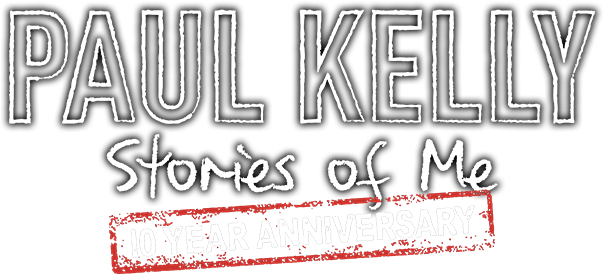Student’s Lesson
Theft or Creative Inspiration?
From PAUL KELLY — STORIES OF ME (16:38–17:20)
Interviewer: There’s a classic saying: good poets borrow, great poets steal… that seems to apply to your songs particularly, Paul.
Paul: Yeah, well we all steal a lot. Well yeah if you borrow something it’s quite obvious that you’ve borrowed it but if you steal something, a good thief will, will hide it, or you know absorb it somehow.
Alex: Paul steals a lot. He’s a really good thief. He steals from lines and words and phrases… from family and friends, from what he’s reading, what he’s hearing. It’s all out there in the ether and he’s the one with the butterfly net trying to catch them.
Compare the statements above with Roland Barthes’ idea of composition
We know now that a text is not a line of words releasing a single ‘theological’ meaning (the ‘message’ of the Author-God) but a multi-dimensional space in which a variety of writings, none of them original, blend and clash. The text is a tissue of quotations drawn from the innumerable centres of culture. [1]
This “tissue of quotations”, this intertextuality, enriches our response to a text. It places the text within certain cultural contexts for us and, when we respond to it, carries echoes of other texts we have experienced. This overlaying of meanings makes one’s response to a text more intricate and potentially more individual.
Intertextuality is about the connections from one text to another and “describes the way texts of all kinds are bound together by the broader reading and writing practices of a culture”[2]. Sometimes intertextuality is explicit as in the case of allusion when another text is drawn upon overtly but mostly it is implicit. In these instances intertextuality echoes the language of certain types of text (such as archaic or particular forms of street slang), forms of other texts or genres and their conventions.
By using an idea or a line from another text the author, speaker or film maker is able to create a more complex connection with the reader.
In her essay Words Matter[3], Sophie Cunningham (author and publisher) says:
[I]t’s worth remembering that Kelly doesn’t always tell the truth — or, more to the point, truth changes. My stepfather, an English teacher, put it to me this way: “Writers often say they’re influenced by one person or other, by one thing or other, after the event. But they’re often making it up.” Think of Kelly as an unreliable narrator and a shameless one at that. A man who’s not afraid to assemble songs from the bits and pieces of other people’s lives as well as his own. All Kelly’s friends probably wonder if they’ve been used in a song some time or other. They probably have been, along with people he’s been watching on the tram, or met after gigs, or heard speak at weddings and funerals. But by the time some fleeting moment or conversation has been forged to suit the purposes of the song, it has been transformed.
Words can be a form of punishment or they can be offered as a gift but nobody owns them (to put, for a brief moment, endless arguments about copyright aside). The trick is to take the songs back and make them your own. It’s what happens in the space between the writer and the reader, the singer and the listener, where things get interesting.
CREATING TEXT / EXPLORING THE INFLUENCE OF OTHER TEXTS
